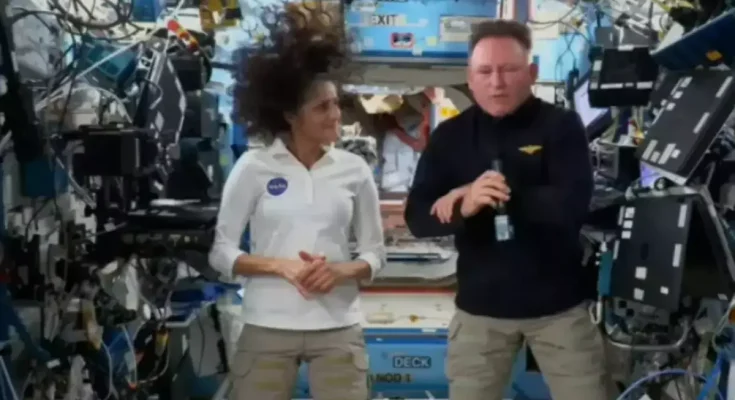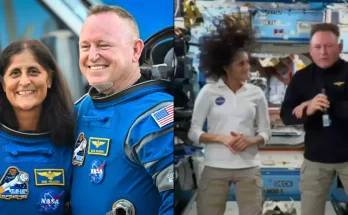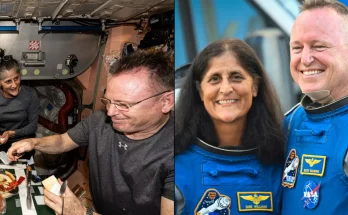Two astronauts stranded in space for over six months have been surviving on less-than-fresh food.
NASA astronauts Sunita “Suni” Williams, 59, and Barry “Butch” Wilmore, 61, originally embarked on what was meant to be an eight-day mission on June 5 of this year.
However, after reaching the International Space Station (ISS), technical problems with their spacecraft left them unable to return to Earth. Since then, they have remained in orbit.

Fortunately, NASA plans to send a SpaceX Dragon capsule early next year to bring them home, though it will still be several months before their rescue.
Updates from NASA about the astronauts’ situation have garnered significant attention on Earth.
Concerns grew for Suni specifically, with some speculating that she was losing weight. However, in a video released on November 12, Suni reassured everyone: “I’m actually right at the same amount.” She went on to explain a phenomenon known as “fluid shift,” which can make astronauts’ heads appear slightly larger.

“But Butch and I have been up here for a number of months, we’ve been on the workout gear,” she shared. “We’ve got a bike, we got a treadmill, and we got weightlifting equipment. And I could definitely tell that weightlifting – which is not something I do all the time – has definitely changed me. My thighs are a little bigger, my butt is a little bigger, we do a lot of squats.”
“All NASA astronauts aboard the International Space Station undergo routine medical evaluations, have dedicated flight surgeons monitoring them, and are in good health,” NASA stated.
While the astronauts are scheduled to return in February, their food supplies have inevitably shifted from fresh to long-lasting alternatives. Initially, their meals included fresh fruit, vegetables, roast chicken, pizza, and shrimp cocktails. Now, they rely on breakfast cereal with powdered milk, dehydrated casseroles, and freeze-dried soups.
As for water, the ISS has a reliable 530-gallon emergency tank. This system recycles urine and sweat into drinkable water, minimizing waste and ensuring the astronauts have a sufficient supply. Although this might sound unappetizing, it’s an essential aspect of life in space.
While both astronauts may appear to have lost weight, experts attribute this to the effects of long-term exposure to microgravity rather than a lack of food.
NASA officials keep a close watch on the crew’s nutrition and food stocks. A US space agency specialist told the Daily Star, “There’s fresh fruit at first. But as the months continue, that goes away. Their fruits and vegetables are packaged or freeze-dried.”
The ISS provides each astronaut with about 3.8 pounds of food per day, with reserves to cover unforeseen delays. “Nothing is left to chance, and that includes their food,” the specialist emphasized. “To be accurate, it should be very clear that any weight loss is not due to a lack of provisions on the ISS. There is plenty of food even for an extended mission.”



